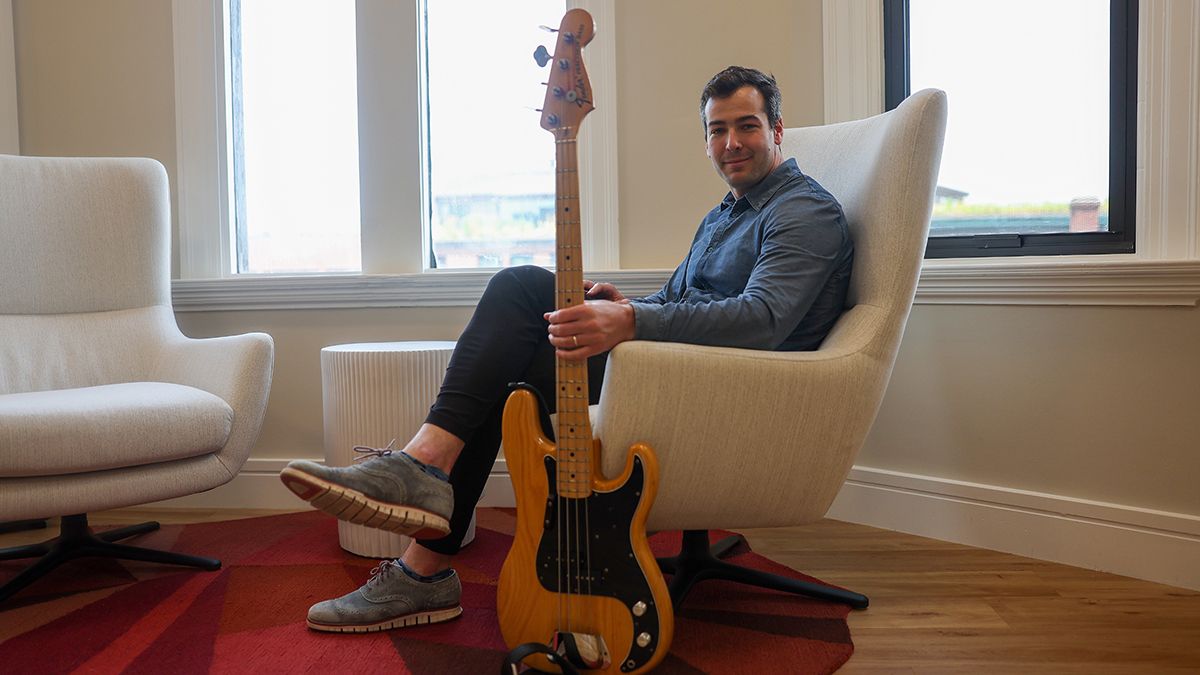The CEO of up-and-coming AI-powered music-making platform Suno has aired a few of his views on the tune-crafting process, and it’s safe to say that musicians aren’t happy.
Suno makes it child’s play to produce music that – to the untrained ear at least – could pass for… music. And while it’s very much in its infancy, it’s being viewed as the tip of the AI iceberg. It’s clear that other, more powerful platforms will come on board, while Suno itself is sure to improve.
Putting the AI cat further among the creative pigeons, the company’s CEO, Mikey Shulman, recently appeared on the 20VC podcast and succinctly spelt out where he thinks Suno fits into the current music-making landscape.
“It’s not really enjoyable to make music now. It takes a lot of time, it takes a lot of practice, you need to get really good at an instrument or really good at a piece of production software,” Shulman explained. “And I think the majority of people don’t enjoy the majority of the time they spend making music.”
It’s an interesting and arresting angle. Certainly, we’ve all struggled with learning an instrument or figuring out why you’ve set up your channel routing but you still can’t hear anything. But to say that making music isn’t enjoyable and that Suno – a text prompt-based way to make instant tunes – is the answer is, like Suno itself, a little bit next level.
Watch On
“We didn’t just want to build a company that makes the current crop of creators 10 percent faster or makes it 10 percent easier to make music,” Shulman continues. “If you want to impact the way a billion people experience music you have to build something for a billion people. That is first and foremost giving everybody the joys of creating music and this is a huge departure from how it is now.
“People aren’t going to care what powered ‘the thing’. You’re just going to care that the music made you feel a certain way.”
Music = video games?
Meanwhile, bedded down in his opinion that music production is a chore that Suno can rid us of the need to do, is Shulman’s take on why music should be more like video games.
“Video games are interactive, they’re engaging, they’re rich experiences, they’re fun by yourself and more fun with your friends and when I think about music, for me, it should be all of those things,” he says, suggesting that right now, without Suno, it isn’t.
“And if you make music interactive and you make music engaging people will pay for it like they pay for video games,” says Shulman, revealing Suno’s potential endgame. “I don’t need to tell you, the video games industry is so much bigger than the music industry.”
And Suno is serious about making it big. It recently drafted in top producer Timbaland as an endorsee, who appears in promo videos to say: “I haven’t been excited about a tool in a long time. I loved Ableton when it came out, but it [Suno] is the new everything. It’s the way you’re going to create music, it’s like: I’ve got this idea, but I don’t have to run back to the studio – I just run to Suno,” before admitting that he now spends around 10 hours a day on the platform.
Ironically, his endorsement of Suno came just hours after thousands of musicians added their signatures to a collective statement from the creative industries, levelled at AI companies and asking them – in no uncertain terms – to stop training their models on their copyrighted work. Something that Suno freely admits doing and is coming under legal fire for.
“It seems silly throwing a bunch of venture dollars at lawyers instead of sitting down and talking about how you can work together. Deciding to sue first and then ask questions later seems to me to be inefficient,” offers Shulman.
“I would obviously rather not get sued. If this lawsuit goes to trial and we lose it’s obviously not good for us. The company is not dead, but it’s obviously not good for us. But what if you could make Suno-like companies go away. Do you really want that? What if the music industry could be as big as the gaming industry? There’s going to be a lot of happy people.”
Musicians Vs The Machine
At the end of the day, Shulman’s comments spell out where Suno stands on all this. Music making is a process, a task that needs to be accomplished, a triumph over adversity, and his software can help. But, much like riding a motorbike in a marathon or having a pro chef prep your dinner on Come Dine With Me, could this be assistance that rather ruins the point of taking part at all?
Perhaps one comment on the podcast’s YouTube sums it up best – “Playing instruments and writing music is FUN, it’s not a chore that we want to optimise away” – and now that Shulman has shown Suno’s hand, it’s not a take that musicians are going to easily forget.


